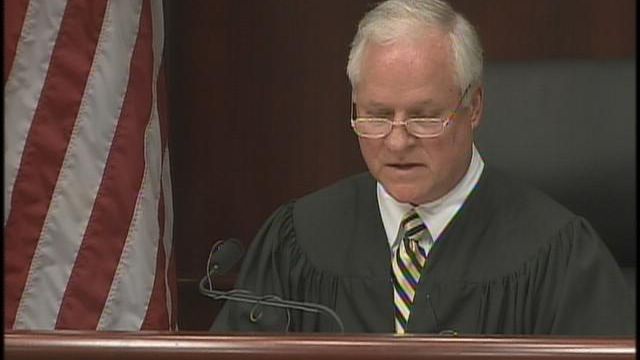Ex-pastor convicted in NCCU student's slaying
Ex-pastor Robert Reaves has been found guilty of first-degree murder in North Carolina Central student Latrese Curtis' death.
Posted — UpdatedProsecutors argued during the nearly two-week trial that Robert Reaves killed Curtis in a jealous rage on Jan. 29, 2008, because he considered her an obstacle to his sexual advances toward his roommate, Steven Randolph, with whom Curtis had been having an affair.
Defense attorneys tried to cast doubt on the state's case by saying evidence suggested Randolph was more likely to have stabbed Curtis, 21, nearly 40 times in the head, neck, chest and stomach and to have left her body along Interstate 540 in Raleigh.
"We made the right decision," he said. "The facts were there."
"I was required at an earlier stage in this trial, because of a deficiency in a search warrant, to suppress all the evidence that was seized from a search of the house. Therefore you did not get the benefit of that evidence," Stephens said.
Curtis had been at Reaves' home visiting Randolph the night before motorists found her body on Jan. 30, 2008.
Reaves, who did not testify during his trial, told investigators he was not on I-540 that night and that no one else had his car.
Cummings told jurors that the most important omission was the discovery at Reaves' house of a partially melted trash can containing accelerant and fabric which, he said "the state would have contended was an effort on his part to burn clothes."
Police also found a receipt for the purchase of what Cummings called a "broiling pan" dated the morning on Jan. 30.
"It would have been the state's position," Cummings said, "that Mr. Reaves got up that morning, after everybody had left, needed to get rid of something that had some blood on it or otherwise might implicate him. I mean, why do you burn clothes?"
The state presented testimony from a state trooper who identified an abandoned car along I-540 that morning as Reaves’. A DNA expert also testified that Reaves' DNA couldn't be excluded from evidence at the crime scene.
A knife discovered in Reaves' car nine months after the crime was never tested and never connected to Curtis' wounds, and defense attorneys implied that it was planted in Reaves' car.
Prosecutors scoffed at that argument, calling it nothing more than speculation.
• Credits
Copyright 2024 by Capitol Broadcasting Company. All rights reserved. This material may not be published, broadcast, rewritten or redistributed.






